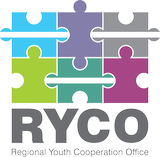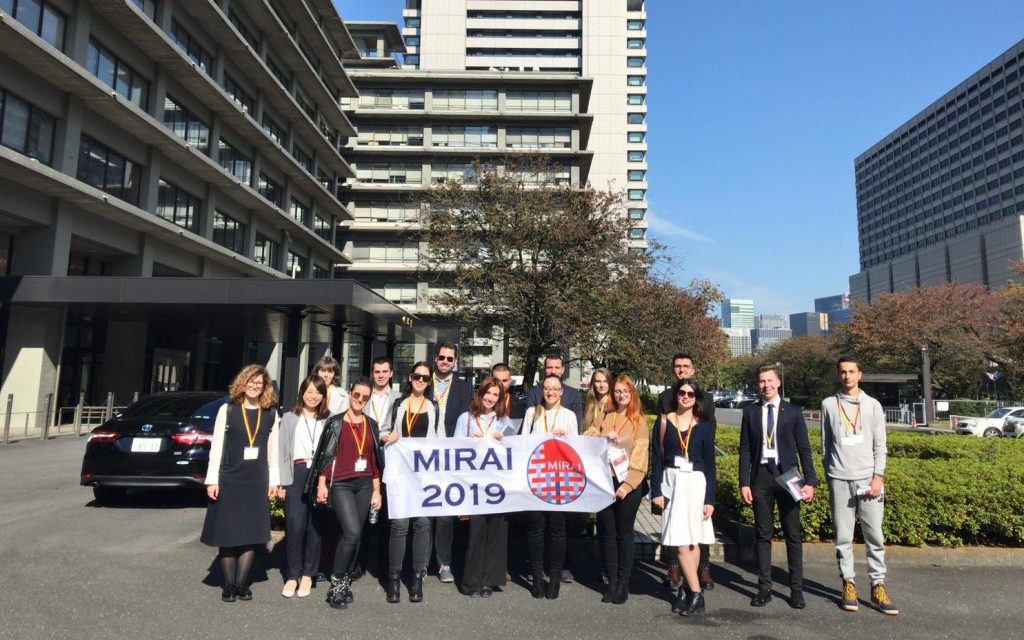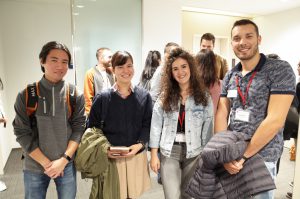WESTERN BALKANS – RYCO has implemented the second youth exchange “Western Balkans Meet Japan – A Bridge into the Future” in cooperation with the Ministry of Foreign Affairs of Japan. This year, fifteen young people from across the Western Balkans, accompanied by RYCO Program Manager Ms Bojana Bulatović, participated in the nine-day MIRAI youth exchange program that took place in Japan on 13 – 21 November 2019.
During the first days of their stay, participants visited the Ministry of Foreign Affairs of Japan and Japan International Cooperation Agency (JICA) in Tokyo where they engaged in discussions on a variety of topics on Western Balkans, Japan, cultures and development. Later, together with Japanese and international students at the Sophia University, participants reflected on the precondition of social sustainability, embedded in the concept of sustainable development goals and of relevance for multicultural living and sustainable peace.
Participants coming from Banja Luka, Durrës, Novi Pazar, Podgorica, Pristina, Sarajevo, Skopje and Tirana also visited the Hiroshima Peace Memorial Museum where they followed horrific images of the atomic bomb attack encountered with a lady who was few years old during the bombing. The ways in which Japanese people have been dealing with the very turbulent past, whose scars were born by generations, were found remarkable by the participants who inevitably led to comparisons on how war crimes are addressed in the region where the participants come from.
“The Hiroshima Peace Memorial Museum provided some very good evidence of how war is never a solution. This is a lesson for governments to finally start and consider sustainable global development as a travel-buddy of universal human rights. It is also a lesson for each and every person to see examples such as from Japanese people who have recovered so fast from the war, thus fighting hatred with love,” one of the exchange participants from Albania Ms Silvana Rusi said.
Followed with two-day stays with Japanese families in Hiroshima district, participants enjoyed understanding the ways in which remembrance and forward-looking attitudes are intertwined in Japan. With some help from technology, non-verbal communication, and extraordinary hospitality, the language and age barriers were overcome. The two eventful days ended with emotional goodbyes.
“Books can be written about our stay with a Japanese family, the wonderful Hideko-Ogawa family and three of us – Albanian, Bosnian and Serbian – as their guests from Europe. Although our host family did not speak English, we understood each other. We were laughing, playing the piano, picking apples, singing our songs. On our way back to Tokyo, our host-grandma cried a lot. This 90-year-old survivor of Hiroshima reminded me of my Bosnian grandma. This home-stay was the best part of the program,” one of the exchange participants from Bosnia and Herzegovina Mr Edin Kanlić highlighted.
At the very end of the visit, the students presented their action plans on how they will share information on their stay in the cities where they come from in the three months to come. Those who join these sessions will get a glimpse of this moving experience.
As of January 2018, MOFA of Japan started the Western Balkans Cooperation Initiative aiming to support socio-economic reforms and facilitate ethnic reconciliation by promoting cooperation in the region. The exchange is part of the MIRAI Program, undertaken by the MOFA of Japan to promote Japanese culture in Europe.









